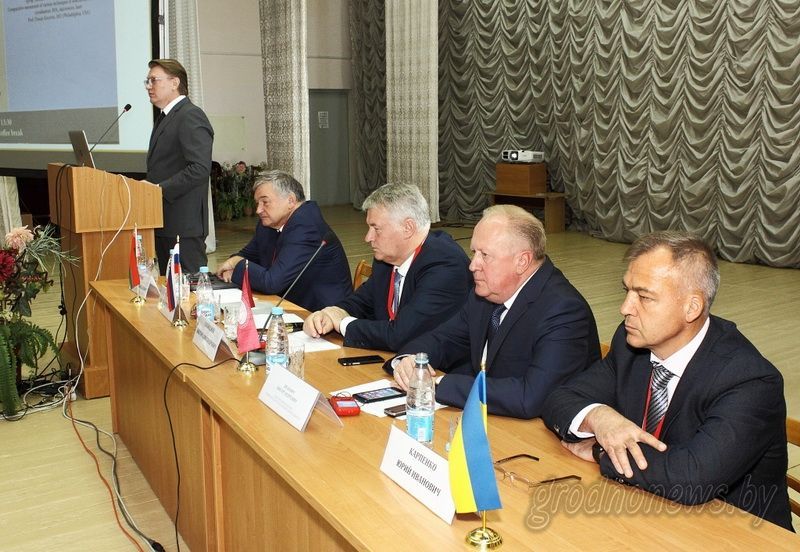
The Congress was organized by the Eurasian Arrhythmology Association, Belarussian Heart Rhythm Association, Republican Scientific and Practical Centre “Cardiology” and Grodno State Medical University. Scientific Program consisted of sessions, which included lectures, seminars and hands-on tutorials by a cardiologist with outstanding expertise in clinical arrhythmology and electrophysiology from Europe and the United States.
More than 300 cardiologists, arrhythmologists and surgeons participated in the meeting and discussed modern ways of arrhythmia treatment. Scientists of Tyumen Cardiology Research Center delivered oral presentations and joined the experts who developed National Guidelines for determining the risk and prevention of sudden cardiac death.
Prof. Vadim Kuznetsov presented a lecture “Effectiveness of cardiac resynchronisation therapy: is there any news?” where he talked about Tyumen experience for treating congestive heart failure, scientific research and the results of the up-to-date world studies.
Dr. Tatyana Gizatulina, Senior Scientific Researcher, spoke about J-wave syndrome, diagnostics and the risk of developing complications of sudden cardiac death.
The Congress was very fruitful: more than a hundred reports were presented, including lecturers from the USA, Italy, Argentina, Israel and other countries. Russian scientists shared with colleagues their experience in the field of arrhythmia treatment. For example, one of the latest achievements is the creation of a registry of treatment of atrial fibrillation, which contains information about patients and allows to evaluate comprehensively the results of treatment using various methods.
The Eurasian Arrhythmology Association (EURA) was founded in 2013 to encourage communication between the specialists in the Eurasian region who often face similar challenges in clinical practice. Some the EURA‘s goals are: prevention of the sudden cardiac death, improvement of the quality of arrhythmia treatment, prevention of treatment complications, and overcoming the gap between the demand and the availability of arrhythmia treatment in the Eurasian region. Additionally, EURA puts a special emphasis on the continuing professional education for young specialists.